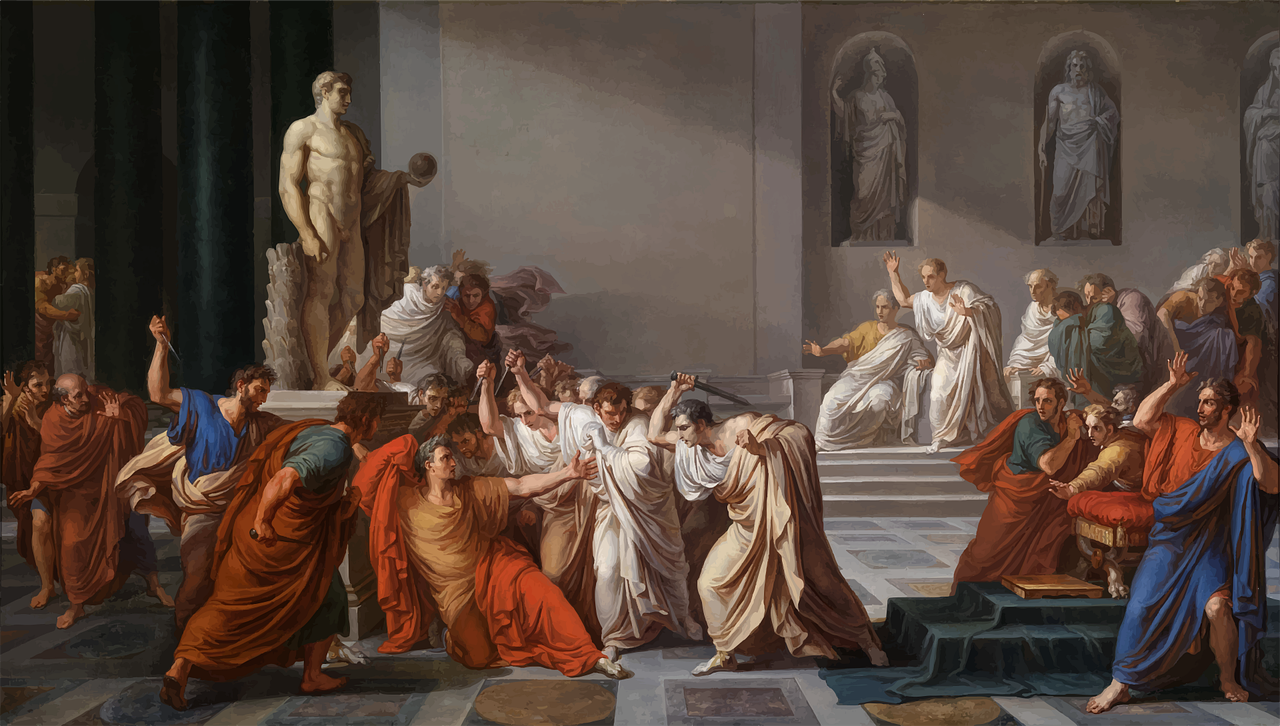
The Roman Triumph was a grand parade that celebrated the military victories of a Roman general. It was a highly symbolic event that showcased the general’s power and authority, as well as the might of the Roman Empire. The Triumph was a spectacle that included a procession of soldiers, prisoners of war, and captured treasure. It was a way for the victorious general to demonstrate his dominance over his enemies and to assert his place in the Roman hierarchy.
However, the Triumph was not without its negative aspects. The event was often accompanied by the abuse and mistreatment of prisoners of war, and it was a way for the Romans to demonstrate their dominance over other cultures. The Triumph was a celebration of power and authority, but it was also a reminder of the fleeting nature of human achievement and the limitations of the Will to Power.
The concept of the Will to Power is a central idea in the philosophy of Friedrich Nietzsche. According to Nietzsche, the Will to Power is the fundamental driving force of human beings. It is the desire to exert control and exert influence over the world around them. Nietzsche believed that the Will to Power was the key to understanding human behavior, and that it was the source of all human creativity, ambition, and achievement.
In many ways, the Roman Triumph is a perfect example of the Will to Power in action. The Triumph was a way for the victorious general to assert his dominance over his enemies and to demonstrate his power and authority to the people of Rome. It was a celebration of the general’s ability to exert control and influence over his world, to command the loyalty and obedience of his soldiers, and to establish his place in the hierarchy of Roman society.
The Triumph was also a way for the general to demonstrate his creativity and ambition. The parade was a highly choreographed event, and the general had to carefully plan every detail in order to showcase his power and authority. The Triumph was a way for the general to demonstrate his ability to think creatively and strategically, to plan and execute complex military campaigns, and to lead his soldiers to victory.
The Triumph was a powerful symbol of Roman culture, and it was a way for the Roman people to celebrate their military victories and to assert their dominance over the rest of the world. However, the tradition of a slave whispering in the general’s ear during the Triumph, “Respice post te! Hominem te esse memento! Memento mori!” or “Look behind you! Remember that you are a mortal man! Remember that you will die!” is a reminder that no matter how much power or authority one may possess, they are still mortal and will eventually die.
This tradition is often attributed to the Roman general, Julius Caesar, who reportedly wept when he saw a statue of Alexander the Great because he had not achieved as much by the same age. The reminder of his mortality brought Caesar back down to earth and prevented him from becoming too prideful or arrogant. The tradition of the slave whispering these words to the general during the Triumph is a powerful symbol of the human condition. It acknowledges that no matter how much power or authority we may possess, we are all mortal and will eventually die. The Triumph was a celebration of human achievement, but it was also a reminder that all things must come to an end.
In many ways, this tradition is a perfect example of the Will to Power and its limitations. The Will to Power is the fundamental driving force of human beings, but it is also a reminder of our mortality and our limitations. The Triumph was a celebration of power and authority, but it was also a reminder of the fleeting nature of human achievement. Ultimately, the Will to Power is a paradox, as it drives us to achieve greatness but also reminds us of our own mortality and limitations. It is a reminder that true power and greatness are not achieved by dominating others or through force, but rather through humility and an acknowledgment of our own limitations.
The Triumph, therefore, represents the duality of human nature. On the one hand, it is a celebration of our ambition, creativity, and achievement, driven by the Will to Power. On the other hand, it is a reminder of our own mortality and limitations, a reminder that power is fleeting and that true greatness comes not from exerting control over others but from an acceptance of our own mortality.
In conclusion, the Roman Triumph was a celebration of power and authority, a way for the victorious general to assert his dominance over his enemies and to establish his place in the Roman hierarchy. However, the tradition of the slave whispering in the general’s ear during the Triumph serves as a reminder of the limitations of the Will to Power and the fleeting nature of human achievement. The Triumph represents the duality of human nature, a celebration of our ambition and creativity, driven by the Will to Power, but also a reminder of our own mortality and limitations. It is a powerful symbol of the human condition, a reminder that true power and greatness come not from dominating others, but from an acceptance of our own mortality and an acknowledgement of the limitations of the Will to Power which is why Nietzsche asks us to sublimate the will to power to turn it inwards at ourselves, to improve ourselves daily, to overcome our own limitations and weaknesses so that we are always in a state of ‘becoming.’ Having conquered our goals, we must therefore seek ever more lofty goals to propel us onwards into greatness, just like generals of ancient Rome.

